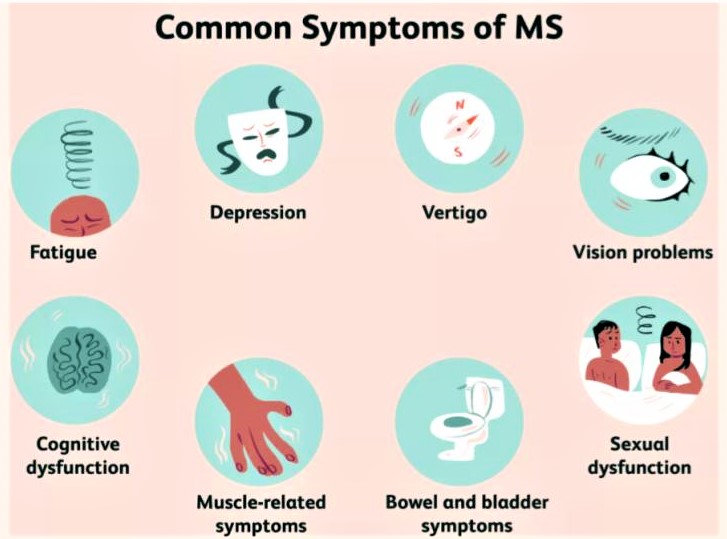
Multiple sclerosis is a neurological disease that causes vision problems, numbness and tingling, muscle weakness, and other problems. It happens when the body’s infection-fighting system attacks and damages nerve cells and their connections in the brain and spinal cord.
The condition can cause many symptoms, but not everyone with MS has all of them, and the symptoms can come and go. MS symptoms can include:
●Numbness, tingling, and feeling “pins and needles”
●Muscle weakness or spasms, which can cause you to drop things or fall
●Vision problems, eye pain, and odd eye movements
●Feeling dizzy or off-balance, which can cause you to fall
●Trouble walking or speaking
●Problems controlling your bowels or bladder
●Problems with sex, like having less interest in sex or not enjoying sex
●Sensitivity to heat, which makes symptoms worse
●Trouble thinking clearly
The difficulty in diagnosis is that these symptoms can be caused by problems other than MS, and MRI findings can be suggestive but inconclusive. In many cases, medical providers can diagnose MS only after seeing how symptoms and test results change over time. The question “Could this be MS?” arises frequently in a neurology practice such as ours, especially since symptoms of migraine with aura may resemble those of MS. If you have any of the above symptoms, please consider an evaluation.
–Alice Wong, NP
Reference: www.uptodate.com/contents/multiple-sclerosis-in-adults-the-basics
